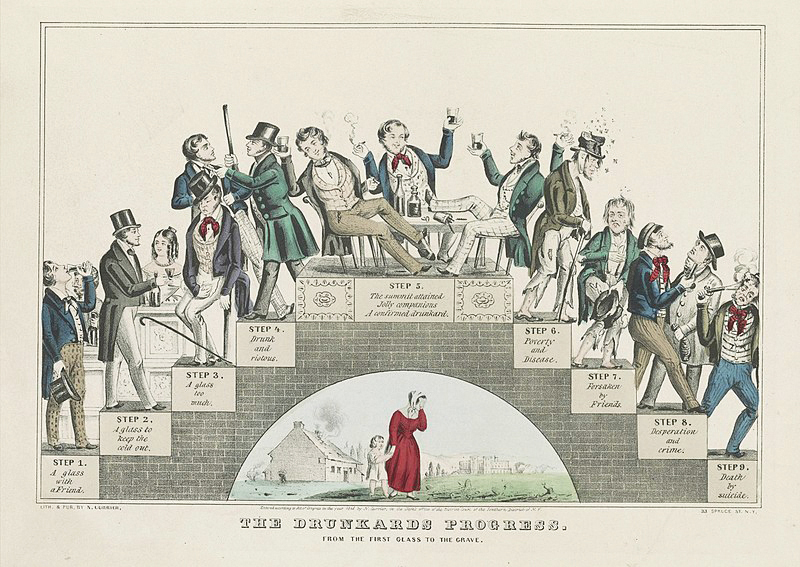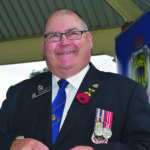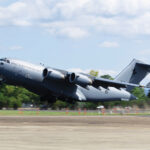Photo of Sons of Temperance courtesy of Wikipedia website.
Over one hundred years ago, nothing but fire-grimed walls remained of the Penrith Temperance Hall that was in Station Street. The International Organisation of Good Templars (IOGT) originated as one of several fraternal organizations for temperance or total abstinence founded in the 19th century, and with a structure modelled on Freemasonry using similar ritual and regalia. Unlike many however it admitted men and women equally and made no distinction by race. The IOGT named themselves after the Knights Templar citing the legend that the original knights “drank sour milk because they were fighting “a great crusade’ against this terrible vice of alcohol”. The motto of the organization was “Friendship, Hope and Charity”. For forty years the hall was Penrith’s chief entertainment and meeting place and the people who did not know the hall did not know Penrith. The fire made short work of the inflammable material within the structure of the building. Onlookers said that they had never seen a fire make such rapid headway as this one did. As with most fires the problem was how did this fire start? First to notice was Archie Greenbanks from Mulgoa whose attention was attracted by smoke issuing from the anteroom’s building attachment that was situated south-west of the building and it was about 9 pm after his discovery when he reported immediately to Constable’s Cavanagh and Flint in High Street and the officers of the law were promptly on the scene to investigate and became aware that a serious outbreak was pending. Constable Flint operated the fire alarm at Murray’s corner situated on the corner of Station and High Streets and Constable Cavanagh notified Mr McLean the proprietor of the picture business conducted there. As Mr McLean lived in Station Street South Constable Cavanagh’s next step was to commandeer a horse and make post haste for the fire station where he sounded the bell. At about 9.15 pm the fire burst with all its fury into the main hall that became quickly on fire from back to front. The excessive heat by the fire in the anterooms was practically spontaneous ignition throughout the whole of the building and the whole interior assumed the appearance of a vast furnace with flames shooting up to a great height that attracted the attention of a large crowd from far and wide. The fire brigade under Captain Hudson arrived on the scene about this time and some delay was experienced in the attack on the flames because the hydrant in Station Street was covered up by road material and had to be picked at for a while before the box could be open. It seems that when Mr E Walsh was Captain of the local brigade, he drew the attention of Penrith Council to the absolute necessity of keeping the hydrants clear of anything that might hamper the firefighting operations and he was under the impression that this matter had been attended to. When the hose was played onto the flames with a fairly strong force of water, the building was past being saved as the firemen never had much chance owing to the rapidity with which the flames spread. However, they worked hard to make the best of things and among other things their attention was devoted to saving adjoining buildings, the nearest was fully 60 feet away from any danger. Fortunately, there was no strong wind blowing in the direction as the fire would very probably have spread further. The hall was the property of Cecil Horstmann who had insured it and various contents belonging to him for £500 with the Guardian Insurance Coy. Among the articles was the piano. The hall at this time was leased by Mr McLean whose possessions were insured for £500 with the Phoenix Assurance Coy/Ltd, with C J Welch the local agent. The insurance that the picture showman had, caused him heavy losses by the fire. The articles covered by his insurance was his picture business fixtures, fittings, etc, a Kynock gas engine and appurtenances, a biograph machine and accessories and a 5 H.O. dynamo. The engine and dynamo were in an iron shed adjoining the lodge anteroom where it was believed that the fire started. Many of the people early on the scene were of that opinion, though some others who appeared to be in a good position to judge was of the opinion that the fire had its origin in the lodge room (known better perhaps to many dancers as the “supper room”). In the engine room there was one tin of benzine and many empty tins. For many years the hall was the venue of many a merry-making gathering, entertainment, business meeting, electioneering addresses or some other form of public or semi-public assemblage. It was built in 1879 by the Nepean Division of the Sons of Temperance. The builders were Messrs. Hardy and Willis. Formerly it was the meeting place of many friendly societies including the Manchester Unity, the Independent Order of Oddfellows, the Protestant Alliance and in more recent years it was used only by the Sons of Temperance and remained the property of that group until 1913 when it was bought by Cecil Horstmann who conducted it as a skating rink for a while, as well as a place of general entertainment. Later, Mr Horstman leased it to Mr Tremaine for picture purposes who later sold his picture business to Mr Martin then it was passed in turn to Mr Carrington and then to Mr McLean. When Mr Horstman acquired the hall, it was smaller. The hall was devoted regularly to picture shows around 1918. When Mr McLean purchased the picture show from Mr Carrington in October 1922 through agent C J Welch, he changed the name of the hall to the “Empire Picture Theatre”. The hall enjoyed a splendid record and in its best days the floor being made of tallowwood was ideal for dancing and had the very desirable qualification that it did not splinter easily but would wear in time and deteriorate. In the supper room there was a tablet that bore this inscription “In memoriam. Brother John Raynor, 1st W.P. Nepean Division, No. 42, Sons of Temperance. Died at Springwood, September 11, 1888. Aged 76 years”. Among the articles destroyed in the fire were lodge property including regalia. When the fire bell rang on that horrible night, someone entered the side door of the Nepean Picture Theatre in High Street and yelled out “fire” that created almost a panic by people who made a hasty exit thinking that the fire was in that theatre until there were shouts of it being a hoax.
Source: Nepean Times (Penrith, NSW: 1882 – 1962), Saturday 6 January 1923, page 5






